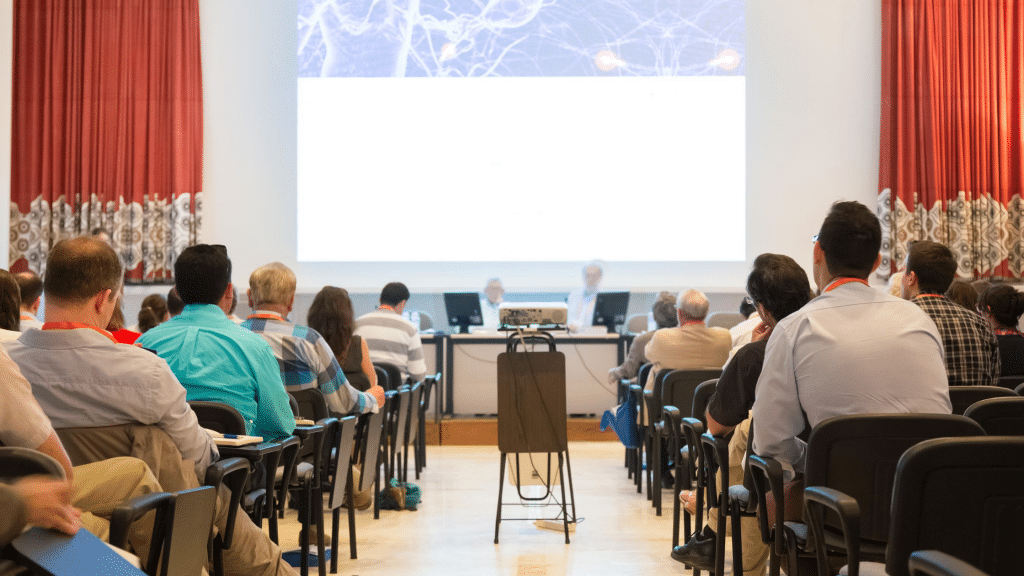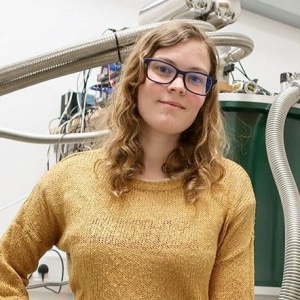As someone applying for PhD positions, you’ll no doubt be thinking of and preparing for the interview with your potential supervisor(s). You’re absolutely right to be doing this and planning your answers to some of the PhD interview questions that they’ll probably ask you; make sure you’ve read our guide on this to help you prepare.
Remember though that the PhD student-supervisor relationship works both ways; as much as the potential supervisor is interviewing you for a PhD position within their lab, you should also have the mindset that you’re also interviewing the professor for the role of supervisor, and be ready to ask questions! Ultimately the key thing you want to know after your PhD interview is you are both a good fit for each other.
With that in mind, I’ve prepared a common list of questions that you should consider asking to help you decide if the supervisor and the research lab is the right fit for you. You don’t need to ask all these questions but instead use this list as a guide for picking what feels most important to you.
I should also note that some of the answers to these questions can usually be found through a quick Google search of the potential supervisor or looking at their university profile. So do think about which questions in particular you want to bring up in person at the PhD interview.
Now on to the questions….
How many PhD students have you supervised previously, and did they all gain their PhDs?
You’re asking this to firstly work out how experienced the professor is at supervising students, based purely on the numbers previously supervised. The reason to ask the second question of how many students gained PhDs is to get an idea of the supervisor’s track record of successful supervision. The lower the percentage of students that went onto complete their PhD under his or her supervision (and not leave the program early), the more alarm bells that should be ringing for you. This of course shouldn’t be your only data point in the decision-making process, and you should try and find out more about why those that left their PhD program before completion, did so. Equally it’s also a possibility that some students have been successful in their PhD research in spite of a supervisor’s lack of support. A good way to get a truer sense of this is by speaking to the supervisor’s current and past students.
Whilst a supervisor’s successful track record can be reassuring, don’t be put off if they haven’t supervised many (or even any) students before, particularly if they’re still fairly new in the job. There are many other ways in which you can get a sense of the supervisor-student fit.

How many years does a PhD project usually take in your lab?
If you’re in the UK, a full time PhD should normally take you 3-4 years to complete, as reflected by most funding grants for PhD research being for this time frame. You want to know and have some reassurance that most students in this lab do finish within this time frame. Asking this question will also help you better understand the supervisor’s attitude towards completion time frames; is this someone that would have no issue with a student that’s been working on their PhD for 6 years or are they driven to help students complete ‘on time’.
What are the key milestones for progression that you expect from students?
This is a good follow on from the previous question. Some supervisors can be very ‘hands off’ and set no expectations on their students about deliverables and if this is the type of student-supervisor relationship you’re after (which some are), then perfect!
However, whilst a PhD project is an independent body of work, that doesn’t mean you have to do it in isolation. Having a supervisor that also acts as a mentor is important; a key aspect of this is to help keep you on track to complete your project ‘in time’, which is most effectively done using regular milestones.
The actual milestones will vary between supervisors but what you’re looking for in their response is some indication that they’ve actually thought about them. Examples of milestones may be the completion of the literature review within the first 6 weeks of starting, first experimental data captured by month 3 and first paper published by the time you end year 1.

How many other students do you supervise?
You ideally don’t want your supervisor to have too many (>5) other PhD students under his or her supervision at any one time, simply because of the dilution of their time that will naturally occur. Being part of an active research lab is a big advantage however, so you don’t necessarily want to be the only student under their supervision either. Remember that the professor may also be responsible for several Master’s and undergraduate students too so you just need to know what to realistically expect from him in terms of available time to meet with you regularly.
How often do you meet with your PhD students?
You don’t want a supervisor that’s too prescriptive in how you run your project, but you do want someone who you know you can rely on to meet with regularly. Some professors set weekly one-on-one or group research meetings that occur at the same time, day and venue; you know exactly what you’re getting here. Others tend to meet less frequently but still at regular intervals. A good balance would be to have catch up meetings every 2 weeks but it’s important to know upfront what the expectations are from both sides about how often to meet.
Finding a PhD has never been this easy – search for a PhD by keyword, location or academic area of interest.
How flexible is the direction of the PhD project?
At the PhD level of higher education, the supervisor is there to provide mentorship and guidance to help you avoid going in a completely wrong direction with your research. You should however expect to have the freedom to take your project in any direction you want to (within reason). This should be the case even if it means deviating from the original research questions that were proposed at the start; you and your supervisor should be in agreement before you start about how much flexibility there can be. Remember too that sometimes the project may have to stay closely aligned to the original plan if it’s required by the industry funder, so this decision may be out of the supervisor’s hands to some extent.
What funding is available for this project?
You should know by the time you come to interview if the project is to be self-funded or if there is specific funding associated with it. It may feel like an awkward question to ask but you need to be very clear on how much of a living stipend you should expect and if there is any additional funding for things such as conference travel, paying for journal publication fees or other bench fees; you don’t want any unpleasant surprises about finances when you’ve already started the PhD.

Do you expect there to be any changes in funding during the course of the project?
Specifically, you want to find out if there’s any risk that the funding associated with the project could be removed. Most often, funding bodies don’t transfer the entire monetary amount of the agreed funding up front in one lumpsum (which can be in excess of £75,000 for a 3-year studentship). Instead, payments are made in instalments and may be done so on the basis that certain milestones are met. For industry funded projects, for example, there may be a service work element (such as specialist analysis using university-based equipment) associated with the funding which will need to be delivered on time for the university to continue to receive money. In reality a complete loss of funding is unlikely to happen, but you should find out if this is at all a possibility of happening.
What is the source of the funding?
It’s important for you to understand how your project will be funded. As discussed in the previous question, the specific funder may place certain requirements on the university that need to be fulfilled to receive the funds. Don’t let this put you off applying or even impact your decision to take on the specific project, but it’s an important factor to be aware of.
Are there any opportunities to earn additional money as a PhD student?
Even if you will receive a stipend during the course of your research project, it comparatively won’t be a lot of money to live on. If you want it, the opportunity to earn extra money can make a big difference in managing your finances. This may in the form of one day/week working as a research technician or paid work preparing and delivering lectures to undergraduate students. It’s useful to know if these opportunities will exist to help you manage your expectations about your finances. Make sure you don’t let yourself feel obligated to take on this additional work however, even if it is paid; the priority will be ensuring your research progresses on schedule.
Will I have the opportunity and be expected to publish papers?

In the UK there is no requirement for you to have published any journal papers before you are awarded a PhD. Doing so however can go some way towards making your final viva that much easier, and also giving you a ‘head-start’ on your publication track record if you continue on into academia after your PhD.
You should get a sense of if your potential supervisor sees an opportunity for you to publish your research, if this is something that you want to do. Equally you should be aware of the supervisor’s expectations about publishing to avoid any potential conflict between your supervisor wanting you to publish work during your PhD and you wanting to wait until you’re in the post-doc stage before writing papers.
How many papers have previous PhD students published with you?
Knowing the answer to this should give you a good idea about the expectations and opportunities of publishing papers during your PhD. It’s certainly a positive sign to know that previous students have successfully published their research and is often a sign of a good supervisory system being in place.
How often does your research group present at academic conferences?
Having the opportunity to present your research at an academic conference is a key experience to have obtained during your time as a PhD student. Some supervisors actively encourage this and ensure that all funding applications include allocations for paying for conference related fees. Others are less convinced about the value of students going to conferences, particularly due to the additional expense of doing so, and may therefore not be as supportive of conference participation.
It’s useful to know what the norm is within the supervisor’s research group so that there are no surprises further down the line.

Is there funding support available for attending conferences?
Again, to be clear on expectations of funding and support for conference attendance, you should find out if there are funds specifically allocated for this purpose. If there aren’t, does the supervisor actively provide support to their students in applying for additional funding for this?
Are there courses and training sessions available for PhD students?
Find out if there are extra resources available to you should you want to use them. For example, do the supervisors students go on paper writing courses, or workshops on how to perform literature reviews? There are lots of new things that you’ll be doing during your PhD, especially at the beginning so it’s good to know that there’s external help available if and when you need it.
What are your past PhD graduates doing now?
This is an interesting one to find out from the supervisor. Are most of their graduates continuing their career development within academia or have many moved into industry work or even to a field completely different to their area of research? Ideally, you’d want this to align with your own career options. If most PhD holders have gone into industry whereas you want to pursue an academic career, you should try and find out why they ended up leaving academia. For example, did these graduates initially have aspirations of becoming professors themselves but were not able to do so or does your particular field normally open up more opportunities within industry?
Finding a PhD has never been this easy – search for a PhD by keyword, location or academic area of interest.
What kind of support do you or the university provide for helping with jobs after?
In particular, what role does the supervisor play in helping their recent PhD graduates find their next job role? Do they have any connections within industry that they’d be able to help you network with? Or have any of their past PhD students stayed on in the lab as post-docs and are there resources in place for you to potentially do the same?
Will there be opportunities to teach undergraduate students?
The opportunity to give lectures to undergraduate students or lead tutorials with them can be a good way to earn some extra money during your PhD (note though that not all universities/departments formally pay PhD students to do this). Getting teaching experience is also important if you’re planning on continuing on down an academic career path at a university so it’s useful if you can gain some of this during your PhD.
Do you as a lab do any team activities together?
This will help you get a sense of the environment you’ll be working in for at least the next three years. Is this a lab with several PhD students and post-docs that make up an active ‘research family’? Does the team ever go out for lunch together or day trips away together to unwind? This can be a great way to build a sense of comradery in a research job that can often feel like you’re working alone in. Some supervisors actively encourage and get involved in nurturing a team environment whilst others are more hands-off, leaving the students to do their own thing.

What is the work environment like? Do students work in a shared office space?
Be clear on what your daily workspace will be like at the lab and university. Do all PhD students sit together in an open space or are there smaller office spaces for one or two students to work in? Some people prefer the buzz of an open space whilst others like the quiet of lone working. Either way, you should know what your work environment will look like for the next three years and plan accordingly (e.g. buy some noise cancelling headphones if you need some quite time in the open plan office).
Conclusion
I’ve given you a number of different questions to think about and ask your potential supervisor at your PhD interview. Not all of them may be relevant, or even appropriate to ask, so do think carefully about which ones you do want to bring up at the interview and which answers you could find out independently by either speaking to other students or looking online. Your research project and your experiences at the university will be so much more enjoyable if you can make sure you and your supervisor are a good fit for each other. The best way to do this is to ask questions!











